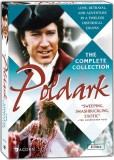| Reviews & Columns |
|
Reviews DVD TV on DVD Blu-ray 4K UHD International DVDs In Theaters Reviews by Studio Video Games Features Collector Series DVDs Easter Egg Database Interviews DVD Talk Radio Feature Articles Columns Anime Talk DVD Savant Horror DVDs The M.O.D. Squad Art House HD Talk Silent DVD
|
DVD Talk Forum |
|
|
| Resources |
|
DVD Price Search Customer Service #'s RCE Info Links |
|
Columns
|
|
|
Poldark: The Complete Collection
Reviewer's note: Since Acorn Media's Poldark: The Complete Collection is simply a repackaging of the previously released Series 1 and 2 (and a welcome, more affordable one for those who don't own the individual volumes), with a pamphlet excerpt from star Robin Ellis' book, Making Poldark, the only new bonus, I'm going to port over my two reviews for those volumes, while discussing the new bonus at the review's end.
"It won't last forever. Nothing is forever. Take it while we can. Live it. Fight it. Laugh at it."
"What, Ross, what?"
"Take whatever life gives and call it ours. What anger. What chance. What love. What happiness."
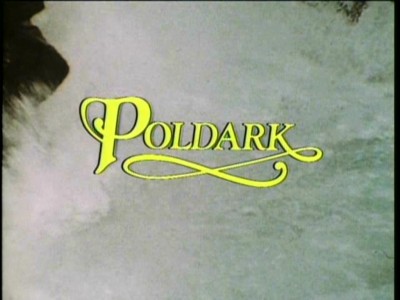
Swashbuckling, romantic historical fiction. Acorn Media has released Poldark: Series 1, the 16-part epic BBC television drama that captivated audiences worldwide back in 1975. Based on the beginning novels in the Poldark series by noted British author Winston Graham, Poldark: Series 1 makes for addictive viewing as the series entertainingly moves from cliffhanger to cliffhanger as our dashing, aristocratic hero Ross Poldark navigates the class inequities of late 18th century Cornwall in his efforts to secure his family fortunes, while struggling with an even greater obstacle: the memory of an old love that won't fade, even in the light of a passionate new romance with a fiery, loyal commoner. DVD viewers used to faded video copies of these British TV shows from the 70s won't mind Poldark: Series 1's less-than-optimal transfer, but a few more extras would have been nice for the series' loyal fans.
Considering the length of Poldark (over 13 and ½ hours), its many subplots and storylines, and most importantly not wishing to spoil any of the fun, I'll just jot down a very brief synopsis of the opening episodes, setting the characters in their places. Brooding aristocrat Ross Poldark (Robin Ellis), an officer with the British forces which just lost the War of Independence with America, returns to his native Cornwall, not realizing that everyone at home believes he was killed in the war (Ross left for America under a cloud, having killed a man in a duel). Arriving at Nampara, the Poldark family estate, Ross is shocked to find it almost a ruin, with lazy drunkard servants Jud Paynter (Paul Curran) and his common law wife Prudie (Mary Wimbush) living like hogs amid the wallow. Even more distressing is the news from delightfully fuzzy lawyer Nathaniel Pearce (John Baskcomb) that Ross' uncle, Charles Poldark (Frank Middlemass), believing he's the heir to Ross' estate, has initiated a sale of one of the two Poldark copper mines ("Wheal Leisure") to arch enemy Nicholas Warleggan (Nicholas Selby), a grasping, power-hungry climber from the emerging mercantile class who is rapidly buying up all of local Cornwall land. The sale was initiated because Ross' father borrowed against the mine, with the note now past due, and with Charles viewing the sale to the Warleggans as more of an appeasement to the powerful banking clan.
But Ross is having none of that. He orchestrates a loan to pay off the note, and angers not only Charles but his even more-ruthless son, George (Ralph Bates), setting off a feud that will last years. Equally troubling is Ross' discovery that his fiancé, Elizabeth Chynoweth (Jill Townsend), believing Ross dead, has fallen in love with Ross' cousin (and Charles' son), Francis Poldark (Clive Francis), a weak-willed drunkard who resents not only Ross' drive and ambition but his past with Elizabeth. Ross vows to win the haughty Elizabeth back, but his pursuit is complicated by the appearance of 13-year-old ragamuffin Demelza (Angharad Rees), a petty thief and commoner that Ross rescues one day and brings home to work as his servant. Proximity, and the realization that Demelza is maturing into a kind-hearted, loyal (if still rough-around-the-edges) woman, brings the unlikely pair together, but at what cost? Love comes no easier for Francis' sister Verity Poldark (Norma Streader), a spinster who finds herself in love with the shadowy Captain Blamey (Jonathan Newth), who hides a terrible secret from the local citizens, nor for newcomer Dr. Dwight Enys (Richard Morant), a young physician befriended by Ross. More interested in helping the local miners than in making a fortune for himself with the wealthy in London, Dr. Enys becomes involved with married miner's wife Keren Daniel (Sheila White), a scandalous relationship that ends tragically, before falling for pretty heiress Caroline Penvenen (Judy Geeson) - a relationship that proves equally challenging. Add to this potboiler set of circumstances personal and family fortunes won and lost, the eternal struggle between the working class and the rich, smuggling, deadly duels, illicit affairs, and love that spans decades, and you start to get a fair approximation of the scope and depth of Poldark: Series 1.
MAJOR SPOILERS ALERT!
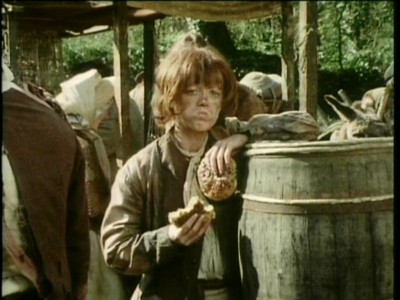
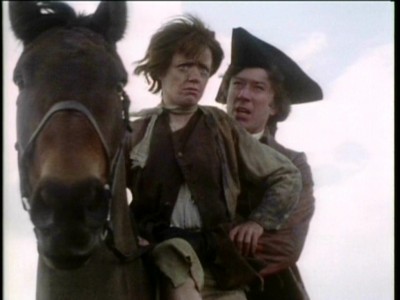
As with any miniseries or film based on a popular work of fiction I review, I like to be upfront about whether or not I've read the source material...even though I'm equally convinced that it's apples-and-oranges to compare the two as if one is somehow intrinsically, artistically beholden to the other. It's fun to complain if a particular book you cherished is turned into a mediocre film that misses or leaves out the heart of the novel (I used to love Vincent Minnelli's Some Came Running...until I read James Jones' novel several times), but in the grand scheme of things, it's a pretty pointless affair. The filmmakers are allowed to do what the want with the source material (they bought it, after all), with the two products remaining entirely different aesthetic experiences once digested. That being said, I've never read any of Winston Graham's Poldark novels, so I can't claim any first-hand knowledge on whether or not Poldark: Series 1 is "faithful" to Graham's intent. I've read other works by Graham, including Marnie (filmed infamously by Hitchcock) and The Walking Stick (filmed into an unsung little gem in 1970 with a rather remarkable performance by the incomparable Samantha Eggar) and I find him to be an exciting, exacting craftsman.
I mention that because although I found Poldark: Series 1 perfectly acceptable and entertaining within its own right, I had to wonder while watching it if the exploration of Graham's political themes, as well as character development in general, were sharper and more successful in the novels (I would expect so). Events come fast and furious in Poldark: Series 1, so much so that it's fairly easy to get caught up in the romance, the action, and the beautiful Cornwall scenery, while forgetting that at times, the motivations for those characters and their actions can seem a little hazy. It isn't that Poldark: Series 1 doesn't try and give historical and political context to its characters' actions - it does. It's just that at times that context seems either superficial or strangely vague, owing no doubt to the necessity of cutting out material from the novels to fit the TV miniseries format (Even though Poldark: Series 1 is over 13 hours long, it's based on four separate books). Throughout the series, Ross is shown to be at odds with his own class as well as with "civilization," if you will. Our first introduction to the character comes with his supportive remarks about the American Indians, and how they're more "Christian" than their Christian colonialist neighbors - and better off without those neighbors' influence. Ross also shows his contempt for the hypocrisies of England's superior jurisprudence system that condemn a young husband and father like commoner Jim Carter (Stuart Doughty) to a filthy hell-hole prison for the petty crime of poaching to feed his hungry family.
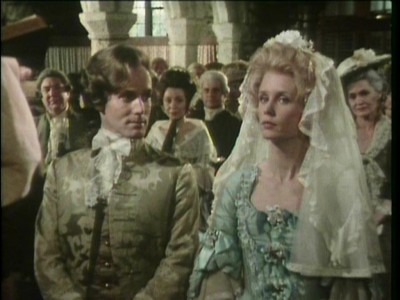
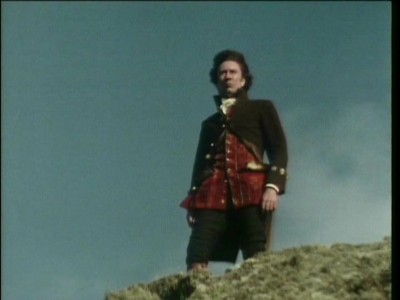
All of that plays well on the surface, ennobling the character and giving him a transformative edge that fits in well with the historical context of the story. But once a viewer starts asking questions such as, "If Ross feels sympathy for the 'noble savages' of the Colonies, where does he get off treating his own servants and the local populace of miners with such paternalistic haughtiness?" the effect is considerably lessened. Ross makes a particular point of disliking the Warleggans' "owning too much," putting others at "a disadvantage through no fault of their own." (boy, would he be a hit in Washington today with that blather). But what about Ross' leg-up on the world, with his own social class buying him the confidence and sense of entitlement that allows him to persevere through harsh times, while his family estate and two copper mines - let alone the goodwill and influence of his many rich friends - help keep him afloat? The film never addresses these seeming contradictions, let alone allowing Ross to feel any sense of hypocrisy over them (peasants, though, are shown up for their hypocritical views, such as Demelza's father, drunkard Tom Carne, played by Tom Henderson, who turns into a phony pious Puritan). Character motivations outside class and social distinctions can also get muddled, without real follow-up later on in the story. What are we to make of Ross' instant forgiveness of miner Mark Daniel (Martin Fisk) when he strangles his poor wife Keren, aiding him as far as risking his own life to help him leave the country - with no subsequent scorn or judgment for his friend Dwight's participation in the affair (the victim seems to be utterly forgotten here)? Even more troubling is Ross' sleeping with Elizabeth, which is shot (perhaps ineptly?) to almost look as though he's raping her. Where did that come from? Other characters at times suffer equally sketchy developments which become more noticeable as the miniseries grinds on, and we settle into the story as the characters become more familiar (cipher Elizabeth, whether from poor casting or just poor scripting, makes no impression as a haughty lady of means who supposedly makes Ross' blood boil).
Where Poldark: Series 1 works the best is when its furiously shuffling its various melodramatic, comedic and romantic elements in its fast-moving storylines - elements that probably lend themselves better to the episodic TV miniseries format, anyway. Certainly Poldark: Series 1's strongest suit is the mixing of the love triangle between Ross, Elizabeth and Demelza (made a bit unsteady by the Elizabeth character's poor development, particularly in contrast to the strong writing for Demelza character), and the constant melodramatic tribulations of Ross' efforts to secure a fortune while changing the coal mining future of Cornwall. I would imagine this is the element of Poldark: Series 1 that most viewers responded to, then and now (apparently, when originally broadcast in the U.K. and America, it set viewing records for the BBC and for PBS' Masterpiece Theater). Taken at this level of unpretentious historical romance fiction, Poldark: Series 1 succeeds quite admirably, with the requisite number of romantic misunderstandings, coincidences, and hardships for any ten melodramas. Comedic elements are sprinkled throughout the production (the rowdy lampooning of the 18th century law courts is matched by the wild, out-of-place final ball, which seems to come, delightfully, from some other film entirely), while the financial backstabbings concerning Ross' mining efforts, and George's desire to crush them, are expertly doled out through the run of the film. While the direction is fairly pedestrian (only the weird, dreamlike strangulation of Keren seems to have fired up the director's imagination), the performances are, as a rule with these British TV productions, superior, with Ellis and Rees making a memorable romantic couple. Viewed on this level alone, Poldark: Series 1 is compulsive, enjoyable TV viewing.
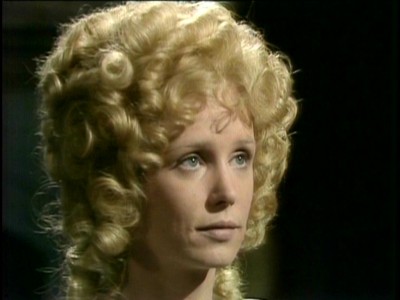
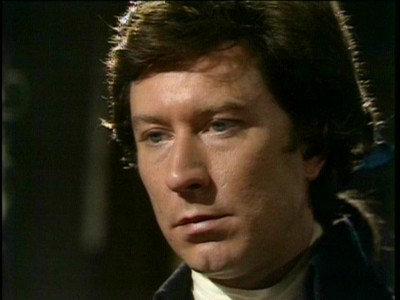
Here are the 16 episodes from the four-disc collection, Poldark: Series 1, as described on their slimcases:
DISC 1
Part 1
Limping and scarred, Ross Poldark returns from the American war to Cornwall after a daring escape from a French prison camp. He finds his debt-ridden father dead, his estate in shambles, and his beloved Elizabeth engaged to his cousin Francis.
Part 2
Ross tries to drink away thoughts of Elizabeth but eventually returns to work restoring his estate. A chance meeting at the market brings Demelza Carne, an ill-bred urchin girl, into his household. Meanwhile, his cousin Verity comes to him for help after falling for a man with a dark past.
Part 3
Ross supports Verity's romance, leading to tragic consequences, while his opposition to the wealthy George Warleggan makes him enemies with the most powerful man in Cornwall. His relationship with Demelza deepens but is complicated by the class divide.
Part 4
While Demelza remains in misery at her father's home, the Poldark family is struck by bad fortune and a series of tragedies. Elizabeth flees her unhappy marriage and runs to Ross to rekindle their romance, but Demelza's secret threatens to come between them.
DISC 2
Part 5
Ross and Demelza grow closer with their marriage and the birth of their daughter. However, both their families disapprove of the union, and Elizabeth can barely hide her contempt. Ross considers a risky new business venture, and Demelza plays matchmaker for Verity.
Part 6
Ross' business plans attracts the attention - and the ire - of the Warleggans. Later, he makes matters worse with a daring rescue mission to free his unjustly jailed tenant from certain death. Tensions run high at the Warleggan's charity ball, where Ross exacerbates the grudge.
Part 7
The whole family feels the repercussions of Francis' betrayal, although Ross is distracted by a murder that casts suspicion on one of his employees. The crime sends the usually honorable Dr. Dwight Enys into a tailspin of doubt and self-loathing and sets Ross on a course that may ruin the Poldarks.
Part 8
Demelza tries to make peace with Elizabeth and Francis, but her goodwill has grim results. Mad with grief, Ross finds himself entangled in yet another scandal after his attempt at aiding a wrecked ship devolves into chaos and violence.
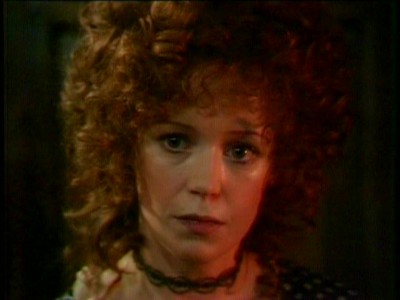
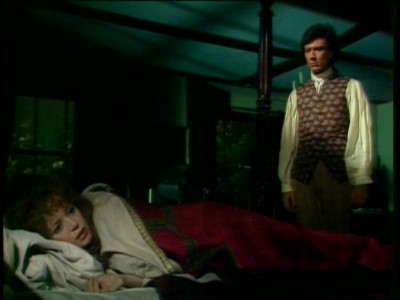
DISC 3
Part 9
Arrested for his role in the shipwreck riot, Ross seems doomed to an unfair trial. Francis seeks to make amends with Demelza, but his guilt over his part in her husband's fall from grace threatens to push him over the edge.
Part 10
Demelza does everything in her power to stop Ross from being unjustly convicted, but the odds are stacked against him. The key to the trial lies in the hands of former servant Jud Paynter - a tipsy layabout easily swayed by drink and coin.
Part 11
Furious over Ross' continued success, the Warleggans hatch a plan to financially devastate the Poldarks. At the same time, Ross and Francis agree to settle their quarrel and begin again as partners. Jud, too, has a business proposal for Ross, but it comes with many risks.
Part 12
After an irate Warleggan and his henchman punish Jud for his loyalty to the Poldarks, Ross' simmering dislike for George boils over into violence. Demelza has some surprising news, but her husband's reaction is even more shocking.
DISC 4
Part 13
Trying to improve their financial situation, Demelza puts herself in mortal danger. A newly optimistic Francis pays a high price for his partnership with Ross, and the family seems to be on the brink of ruin once again - until an anonymous benefactor steps in.
Part 14
Ross and Demelza are overjoyed by the birth of their son and their change in fortune. Life appears to be going well for the Poldarks, until a villager's treachery puts Ross in danger and separates Dr. Enys from his betrothed.
Part 15
Ross escapes the fracas unscathed, but the villagers are not so lucky. Robbed of their land and livelihoods by George Warleggan's greed, they whisper about revolt. Desperate to leave Cornwall, Elizabeth makes an unforgivable decision, and Ross risks everything to change her mind.
Part 16
After her husband's deception, Demelza looks for revenge from some unlikely sources. Tensions run high at home and abroad: the villagers are in open rebellion and war with France lies on the horizon. The discovery of tin at the family mine give the Poldarks financial stability, but their marriage threatens to collapse.
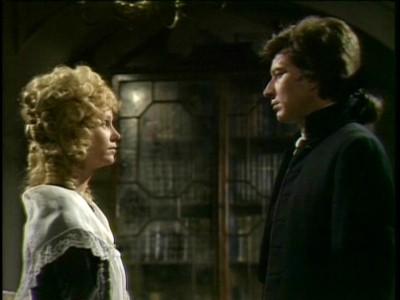
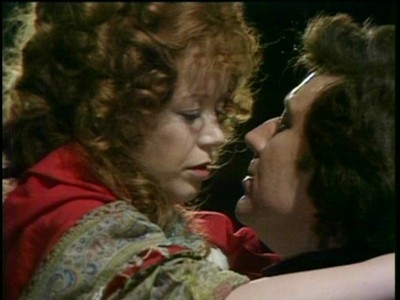
The DVD:
The Video:
As I wrote above, if you're used to these kinds of transfers from British TV series and shows from the 70s, you won't mind the look of this full-screen, 1.33:1 transfer. I would imagine the elements used for this transfer came from a video dupe; if not, the original masters are fading fast, with blown-out contrast and dull-as-dishwater colors (part of that might also be the inferior production values of British television at that time, with crappy video-shot interiors and fuzzy 16mm fidelity for the location work, compromising the overall look of the movie). No compression issues to speak of, though.
The Audio:
The Dolby Digital English mono audio track is just acceptable, although recording levels are all over the place. English subtitles do help, though, with the Northern accents.
The Extras:
Other than some text bonuses concerning the history of Cornwall and some cast filmographies, no extras for Poldark: Series 1.
Final Thoughts:
A long, entertaining historical fiction, with plenty of romantic, melodramatic (and comedic) moments to keep you coming back after each cliffhanger. Poldark: Series 1 may not always make its points (vague as they may be to begin with) within the political and societal context it sometimes strives to achieve, but it's well-intentioned and more importantly, sure-footed with its action-and-kisses-filled plot. And sometimes that's enough. I highly recommend Poldark: Series 1.
"Surely what you fear is what everyone has had to face since the world began. But it's certain. You can't fear a certainty. Tomorrow doesn't exist. There can only ever be now. We cannot ask for more. There is no more to ask."
More melodrama. More action. More thwarted love. Acorn Media has released Poldark: Series 2, the 1977 continuation of the wildly popular 1975 Poldark miniseries, with stars Robin Ellis, Angharad Rees, and Ralph Bates returning as our dashing hero, strong, willful heroine and dastardly villain, in that order. Zero extras this time around, which seems a shame when you learn how popular these adaptations were, but the non-stop action, back-stabbing double-crosses, and melodramatic amorous adventures, stretched out over an epic-sized canvas, should prove irresistible to lovers of historical romantic fiction and vintage British television.
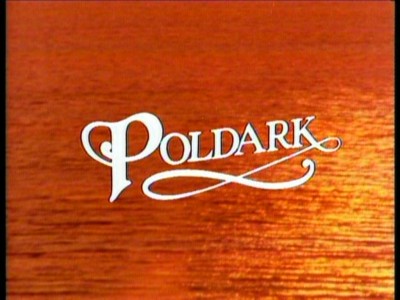
It's impossible to properly encapsulate the sprawling events of the 11+ hour Poldark: Series 2 here in this review, nor would I dare throw out too many spoilers...at least until I put up my usual red "Spoilers Warning!" flag. So I'll just try and set the stage as briefly as I can. Having been mustered out of the army for malaria he picked up in the States, late 18th century aristocrat Ross Poldark (Robin Ellis) returns to his beloved Cornwall, England, greeting his gypsy hellcat wife, Demelza Poldark (Angharad Rees), and wondering when he'll meet his nemesis: grasping, power-hungry businessman and politician, George Warleggan (Ralph Bates). Far from honoring Ross with friendship and loyalty after Ross saved George and his wife, Elizabeth (Jill Townshend), from a murderous mob at the end of Series 1, jealous, class-conscious George's hatred for Ross burns even brighter--particularly since he has to share his house (which used to belong to Poldark) with aged Aunt Agatha Poldark (Eileen Way), a wily, smart-mouthed old hag who loves nothing more than putting the pompous, vicious George in his place.
Determined to destroy his rival Ross once and for all, George engineers various attacks upon the extended Poldark family--from banking plots, to political maneuvers, to outright violence--in the hopes of assuaging his own jealousies over Ross' and Elizabeth's past love affair...and his suspicions concerning the parentage of his son, Valentine. But he finds he has little popular support from the villagers over aristocratic man-of-action Ross, who wipes out past misdeeds with an adventure over in France, where he steals back friend Dr. Dwight Enys (Michael Cadman) from the clutches of the murderous "democratic" revolutionaries. Ross does himself no favors, however, when he also rescues Hugh Armitage (Brian Stirner), a handsome young officer who takes an immediately liking to Demelza...who maddeningly returns this forbidden affection. Expressly forbidden--and entirely unwelcome--affection comes from grotesque Reverend Osborne Whitworth (Christopher Biggins) towards his new wife, Morwenna Chynoweth (Jane Wymark), Elizabeth's cousin who plays nursemaid to Elizabeth's son Geoffrey Charles. Bartered off to the Reverend by unfeeling, manipulative George, pretty Morwenna still loves honest, good-hearted blacksmith Drake Carne (Kevin McNally), Demelza's brother, but he's not of her class, and thus, unsuitable for marriage. Instead, the fat, ill-tempered Osborne corrupts the young Morwenna, almost killing her during her pregnancy, only to take up with her sluttish, venal little sister, Rowella (Julie Dawn Cole). Who will wind up with whom at the end of Poldark: Series 2, and more importantly: will they be happy?
SPOILERS WARNING!
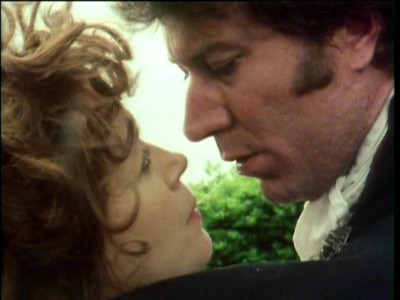
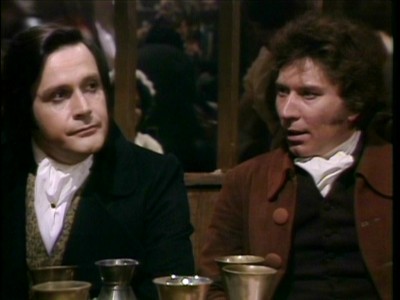
I won't go into any background on the author of the original Poldark novels, Winston Graham, or discuss the first series, since I wrote about them both back in March (you can access that review here). Taking this continuation on its own merits (newcomers admittedly will have some difficulty picking up references to previous relationships, feuds, wrongs, and slights here if they haven't seen the first mini), Poldark: Series 2 puts on speed, ramping up the swashbuckling aspects of the first series (we even get an old-fashioned duel), while sticking closely to fairly familiar melodramatic conventions. In my review of the first series, I wondered how "faithful" the mini was to the original source novels (where I also wondered if some of Graham's more serious considerations and themes were given less emphasis in favor of a more conventional approach). Comparing this second outing to the first, it seems clear that "serious" considerations have been put entirely on the back burner, while splashy derring-do and heavy-breathing romantic entanglements dominate...and that's just fine with me.
That assessment isn't meant to diminish Poldark: Series 2 in any way; "entertaining" is just as hard to achieve artfully as "serious drama," and Poldark: Series 2 is, if nothing else, entertaining. Playing off the inherent appeal of serial drama, where the viewer just has to keep coming back to see how the story ends, Poldark: Series 2 keeps the cliffhangers coming, juggling multiple storylines with, if not finesse, then at least crude energy--and that's going to be enough to satisfy fans of this type of historical fiction. Taking place during the tumultuous upheaval wrought by Napoleon's rise to power, Poldark: Series 2 only mentions the little general once or twice, while paying lip service to other political and sociological themes that merely serve as convenient hangers for plot machinations. Ross Poldark may indeed sympathize with the starving miners who riot for food (and thereby creating the possibility of an interesting contrast for an aristocrat in both breeding and wealth), but Poldark: Series 2 doesn't show that riot--we only hear about it, and it's only brought up to illustrate yet another maneuver by George and Ross to get the better of each other. Politics and the notion of class struggle in this mini are sparingly used only to set up the next screw-job by the perpetually warring leads.
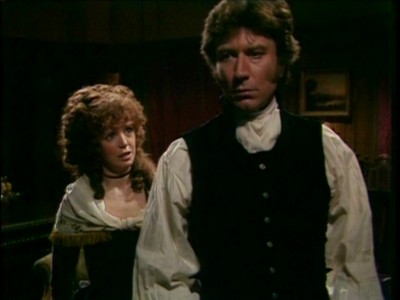
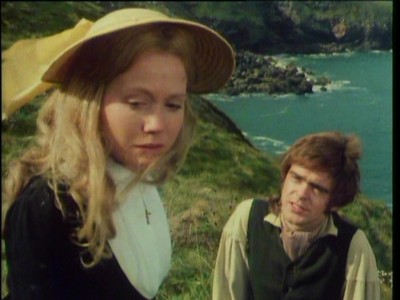
No, love and action and twisty plot developments for their own sake rule in Poldark: Series 2, all of them thoroughly familiar, and all of them can't-miss precisely because of that time-tested conventionality. Although the evolution of Ross' and Demelza's tempestuous marriage is ostensibly the centerpiece in the film, villains always steal the show in melodrama, and that's true here, as well. Curiously, the handling of Ross' almost-convinced knowledge of his siring Valentine is as awkwardly dealt with as Demelza's romance with Armitage is brought over flat and uninspiring. Not having read the original books (I've read other Graham novels, and he wasn't that sloppy), I can't tell how much of this has been either bobbed from the original, or invented for the film. However, I can tell when a subplot is uninteresting and certainly, such is the case with Ross and Elizabeth's deteriorating relationship (it should be one of the mini's most compelling). Equally surprising is the somewhat stale take on Demelza's love affair with Armitage, which plays all soft and puppylove-ish, when it should be erotic and sensual and powerful, since she's almost breaking away from Ross, the love of her life. According to what I've researched on the web about Poldark and Graham, he wasn't too happy with the first filmed adaptation, and spurned involvement with this second one, thereby necessitating the cancelling of the series (there was a prospective series pilot shot in '96, with all new actors, which created a firestorm of ill-will from viewers who only wanted Ellis and Rees in the lead roles). Considering that strong reaction from an author who might have been grateful for the promotional possibilities of his novels' continued presence on television, I'm betting the problems in construction and tone I'm sensing with these scenes probably weren't present in the novels.
Luckily, our two villains--George Warleggan and the Reverend Osborne Whitworth--deliciously fulfill our melodramatic expectations, with evilness and perversity to spare. The filmmakers are particularly adept at letting the cold, selfish George dominate the proceedings, unleashing his murderous desire to consolidate power that switches from indifference to almost-mad passion in the blink of an eye (Robin Ellis may be the mini's heartthrob, but Ralph Bates walks away with the acting honors here). Bates' character lacks any redeeming features (one of the highlights is his shaking to death a 98-year-old woman), but he's the anchor for the rest of the film, providing much-needed jolts of adrenalin every few scenes as he continually schemes--and fails--to bring down all those around him, including his "loved" ones. Biggins' Reverend Osborne is an even cruder, more base villain, upping Poldark: Series 2's squirm factor considerably as he selfishly sets out to abuse his wife. Having already killed his first wife by having sex with her too soon after she gave birth (his considerable girth caused internal injuries), sexually-insatiable Osborne almost does the same thing to sweet Morwenna (Midsomer Murders' Jane Wymark is perfect here: at first innocent, and then convincingly scarred), before he settles on her sluttish sister Rowella to relieve his lust. Only hinting at some unspoken sexual "fantasy" Rowella will provide Osborne should he continue to pay her (by all means, send me emails if you think you guessed it...), the filmmakers bring a surprisingly kinky tone to this historical romantic framework, once again illustrating how much further English television was willing to go in comparison to the positively Puritanical American TV of 1977. Taken within that context, you can certainly give credit to popular miniseries like Poldark: Series 2 and other British imports to PBS series like Masterpiece Theater, for helping to "open up" American network dramatic television to more adult themes and depictions (for better or worse, as you may judge it).
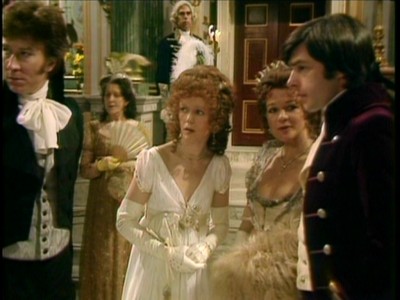
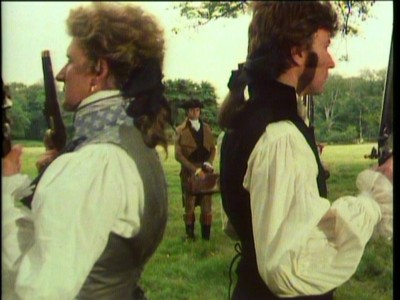
Here are the 13 episodes of the 4-disc set, Poldark: Series 2, as described on the discs' slimcases:
DISC ONE
Part 1
George Warleggan now owns the home of Ross' elderly aunt Agatha. Ross protests to no avail, but George--whose wife, Elizabeth, is pregnant--cannot easily dismiss the ominous words Agatha utters about a "child born under a black moon."
Part 2
Demelza Poldark is expecting a child of her own, but Ross is preoccupied with other news--the wreck of Dwight Enys' ship off the coast of France. Meanwhile, Demelza's two younger brothers, Sam and Drake Carne, generate more friction between the Poldarks and the Warleggans.
Part 3
After narrowly escaping execution in France as a spy, Ross continues the search for his friend Dwight. Drake also runs risks as he pursues a relationship with Elizabeth Warleggan's young cousin, Morwenna.
Part 4
George Warleggan makes his own plans for Morwenna's future--and plans of a distinctly different sort for Drake. Only Ross' intervention saves his young brother-in-law's neck, an act of generosity that Drake is determined to repay.
DISC TWO
Part 5
A daring raid to rescue Dwight from a French jail succeeds--but at great cost. Back in Cornwall, tension fills the Warleggan household after their infant son falls ill; Morwenna is unhappily married off to a vicar; and Aunt Agatha's final words shock George to the core.
Part 6
George sets out to find the truth about his son. Dwight marries his sweetheart, Caroline. And Morwenna's recently arrived younger sister, Rowella, attracts the attentions of Morwenna's husband, Ossie.
Part 7
Ossie and Rowell form a new bond as Ross and Elizabeth rediscover an old one. More interested in social status than romance, George concentrates his efforts on getting elected as the local member of Parliament.
DISC THREE
Part 8
Members of the Warleggan and Poldark families become mired in jealousy. George takes out his hatred of the Poldarks on poor Drake Carne, but it is the gentle Morwenna who proves particularly ruthless in exacting retribution and getting just what she wants.
Part 9
Corn prices are rising, miners are rioting, and Ross is divided between his loyalties to the Crown and sympathies for the poor. When a new election is called, he decides to run for Parliament against George, who risks not only losing his seat, but also his wife.
Part 10
Marital tension pervades the Poldark home, although it's nothing compared to the rancor between Morwenna and Ossie. Tragedy lurks for Dwight and Caroline, while George finds yet another way to hit back at Ross.
DISC FOUR
Part 11
A party at the Warleggans' attracts the great and the good--as well as the uninvited Ross, who manages to steal some moments with Elizabeth alone. Meanwhile Drake faces an excruciating choice when he learns about the fate of Morwenna's husband, Ossie.
Part 12
Drake disappears, suspected of murder, and George's plans to hurt Ross begin to take effect. But it is the actions of Demelza that not only nearly bankrupt the Poldarks, but also put Ross' life on the line.
Part 13
Ross accepts a duel, risking a conviction for murder. Newly pregnant Elizabeth considers extreme measures to safeguard her marriage and family. And Drake makes one last play for a life of happiness with Morwenna.
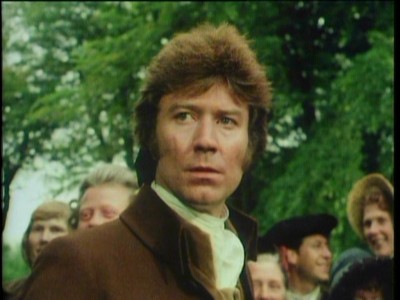
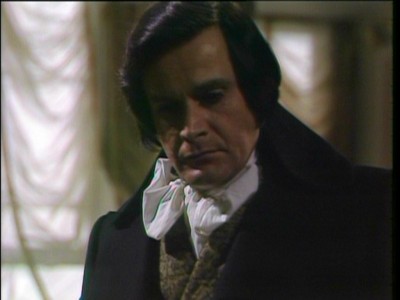
The DVD:
The Video:
Exactly the same as the first series' release. If you're used to these kinds of transfers from British TV series and shows from the 70s, you won't mind the look of this full-screen, 1.33:1 transfer. I would imagine the elements used for this transfer came from a video dupe; if not, the original masters are fading fast, with blown-out contrast and dull-as-dishwater colors (part of that might also be the inferior production values of British television at that time, with crappy video-shot interiors and fuzzy 16mm fidelity for the location work, compromising the overall look of the movie). No compression issues to speak of, though.
The Audio:
The Dolby Digital English 2.0 stereo audio track certainly doesn't take advantage of any split directionality. Recording levels fluctuate (that could very well be from the original source materials), and hiss is noticeable on a high-end system. English subtitles are available.
The Extras:
Not even any text extras, as in the first series. Nothing.
Final Thoughts:
Politics and sociology, scattershot as they were in the first series, are pushed aside here in Poldark: Series 2, as the filmmakers focus on love and adultery, backstabbing revenge, and swashbuckling heroics. Even at 11+ hours, Poldark: Series 2 moves along at a hell of a clip, and there are enough interesting moments with our repugnant villains to distract us from the less-successful romantic entanglements of our sometimes bland heroes. Melodrama to be sure, and welcome for that. I highly recommend Poldark: Series 2, but only for those who saw the first series.
Final Thoughts on the Repackage:
Since Poldark: The Complete Collection is about $30 cheaper than buying the exact same two disc sets individually...purchasing it seems an obvious choice. And while it's not a big bonus, the 8-page, color stills-filled excerpt from Robin Ellis' 1978 tome, Making Poldark, is a fun little extra that add just that much more incentive to buy this essential bit of British TV history. Terrifically entertaining, and now properly complete, I'm highly, highly recommending Poldark: The Complete Collection.
Paul Mavis is an internationally published film and television historian, a member of the Online Film Critics Society, and the author of The Espionage Filmography.


|
| Popular Reviews |
| Sponsored Links |
|
|
| Sponsored Links |
|
|
| Release List | Reviews | Shop | Newsletter | Forum | DVD Giveaways | Blu-Ray | Advertise |
|
Copyright 2024 DVDTalk.com All Rights Reserved. Legal Info, Privacy Policy, Terms of Use,
Manage Preferences,
Your Privacy Choices | |||||||









